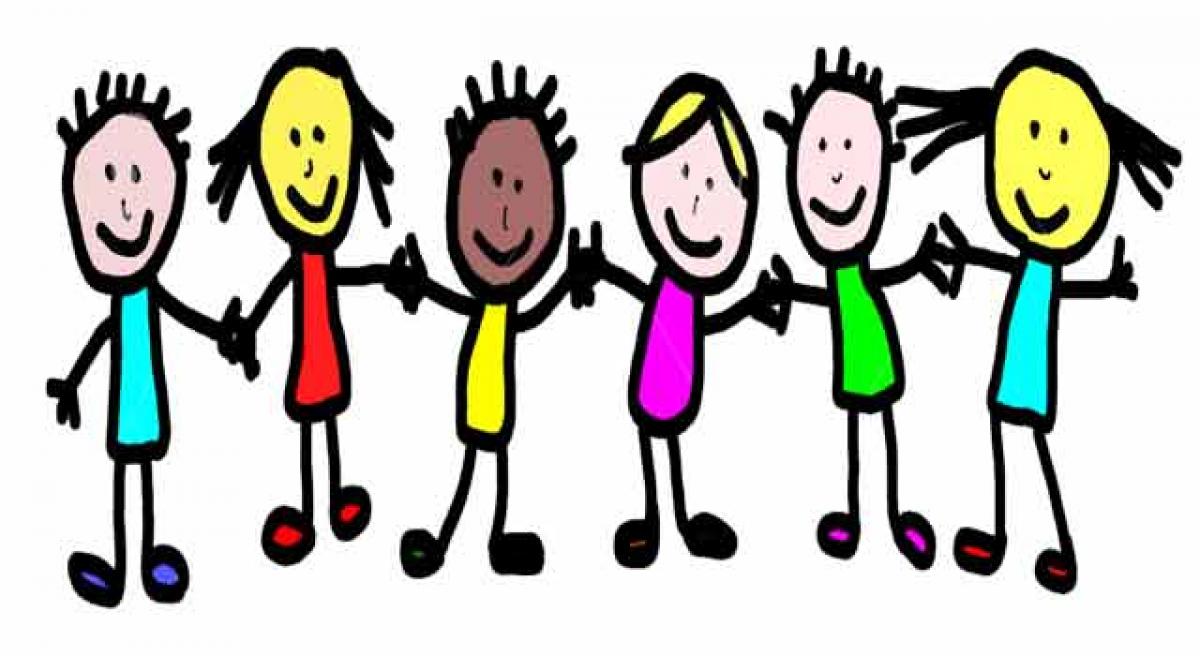Live
- Study explains mechanisms behind food poisoning, gut infections
- UN warns armed violence deepens humanitarian crisis in Sudan
- Maha Vikas Aghadi will win over 160 seats, form government in Maharashtra, says Shivakumar
- 6 Factors to Consider While Choosing the Right IVF Clinic in Hyderabad
- PM Modi emplanes for three-nation visit to Nigeria, Brazil, Guyana
- Chandrababu stresses on deregulation in telecom sector at Hindustan Times conference
- MP govt to promote 'Gita Jayanti' like other festivals
- Sidhant Gupta Revolutionises India’s Dairy Sector with Cutting-Edge Technology
- National Press Day 2024: Honouring Journalism in the Digital Era
- Margashirsha 2024: Dates, Rituals, and Spiritual Significance
Just In

Friendship is infectious. Friends are ubiquitous. However, Harvard research reveals that ‘You Have Fewer Friends than You Think’.
Friendship is infectious. Friends are ubiquitous. However, Harvard research reveals that ‘You Have Fewer Friends than You Think’.
But, this need not make you apprehensive about having friends and maintaining long-standing friendship. It only cautions. The biblical wisdom tells that friends relate to love, hurt, wounds, healing, joy, encouragement, etc.
Friendship is assumed to be reciprocal. But, says, Alex ‘Sandy’ Pentland , in an article published in Harvard Business Review , “When we analysed self-reported relationship surveys from several experiments around the world, we found that while most people assume friendships are two-way, only about half of friendships are indeed reciprocal.”
There is an intricate relationship between friendship and one’s success or failure. It is especially so as, research further reveals, non-reciprocal friendship challenges one’s self-image.
“One who has unreliable friends soon comes to ruin,” warns Bible. Spiritual wisdom across all religions and philosophers dwell about such human relations. Bhagavad Gita advises us that the righteous choose their friends carefully, but the way of the wicked leads them astray.
Sometimes friendship need not be totally non-reciprocal, but, it can be asymmetrical. Success depends on the ability to make right kind of friends to help at critical times.
With generational change taking place, social influences especially peer influences became more profound in their impact on individuals and societies. Such impact is evident on behavioural change management and promotion of innovative ideas.
With the development of communication technologies and globalisation of the economy, networking has become a critical factor in one’s ability to grow in the profession. Thus friendship is no longer personal but becomes a professional attribute too.
Walking with a friend in the dark is better than walking alone in the light, rightly observed Helen Keller. The eminent decline in value system did have its debilitating impact on interpersonal relationships like friendship too.
Money, materialistic lure, influence of circumstances, impact of several intervening individuals and issues often have adverse impact on friendship. One should be wary of such factors that create ‘noise’ in friendship.
As the celebrated Lebanese-American artist and poet Khalil Gibran said, “Friendship is always a sweet responsibility, never an opportunity.”
Intrusion is often justified in the name of friendship. Often friends’ over indulgence is treated as a measure of friendship. But, a friend should never be an interventionist.
Such over-protective friendship often proves to be detrimental to whom you want to help. A true friend is one who allows a healthy development of a person rather than in the name of friendship disembowels the other.
As one of the greatest philosophers known to mankind, Aristotle said, “My best friend is the man who, in wishing me well, wishes it for my sake.”
Read this simple and effective story someone has shared with me on WhatsApp. A man, an avid gardener saw a small butterfly laying a few eggs in one of the pots in his garden.
Since that day, he looked at the egg with ever growing curiosity and eagerness. The egg started to move and shake a little. He was excited to see a new life coming up right in front of his eyes.
He spent hours watching the egg now. The egg started to expand and develop cracks. A tiny head and antennae started to come out ever so slowly. The man’s excitement knew no bounds.
He got his magnifying glasses and sat to watch the life and body of a pupa coming out. He saw the struggle of the tender pupa and couldn’t resist his urge to ‘help’.
He went and got a tender forceps to help the egg break, a nip here, a nip there to help the struggling life and the pupa was out.
The man was ecstatic! He waited now each day for the pupa to grow and fly like a beautiful butterfly, but alas that never happened.
The larvae pupa had an oversized head and kept crawling along in the pot for four full weeks and died! Depressed the man went to his botanist friend and asked the reason.
His friend told him the struggle to break out of the egg helps the larvae to send blood to its wings and the head push helps the head to remain small so that the tender wings can support it through its four-week life cycle.
Also Read:

© 2024 Hyderabad Media House Limited/The Hans India. All rights reserved. Powered by hocalwire.com







